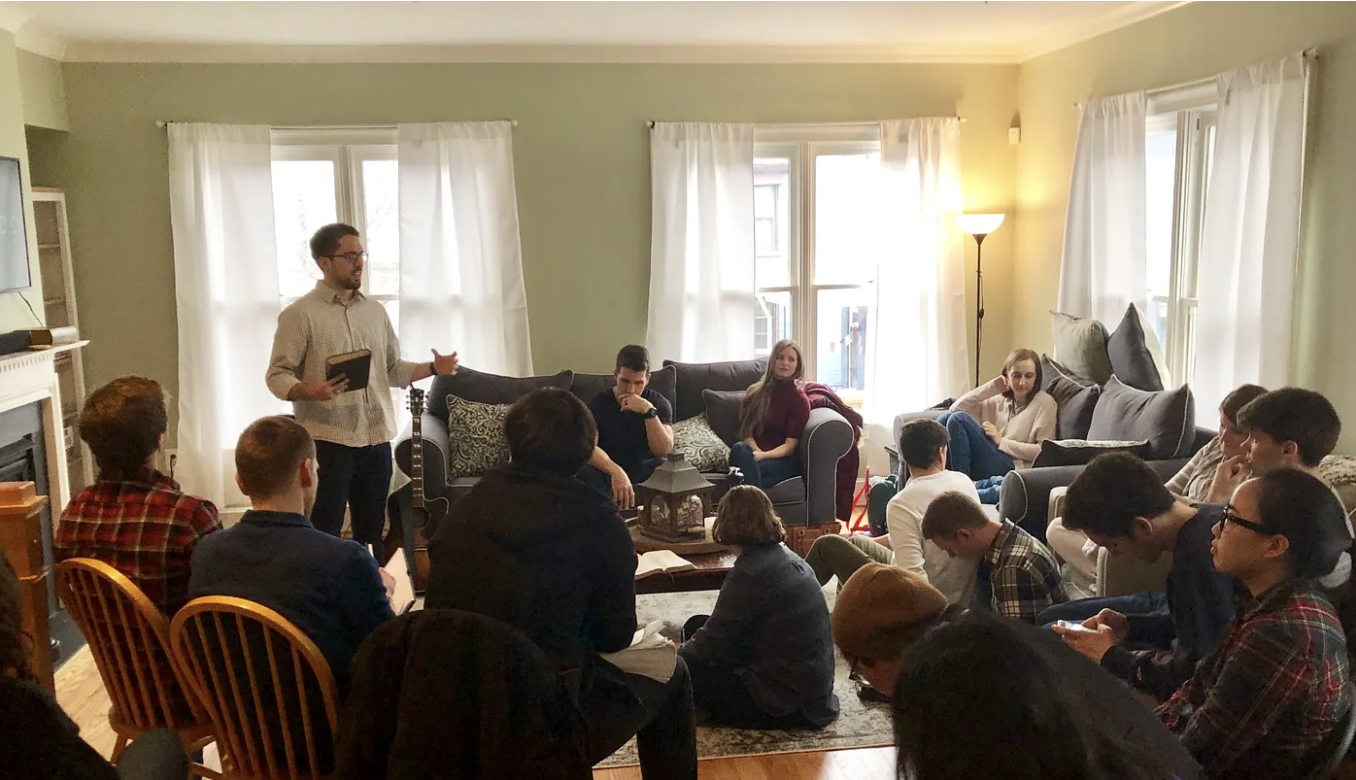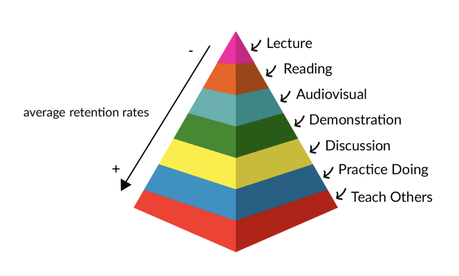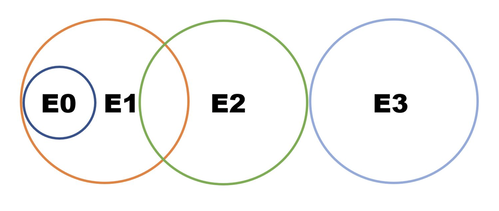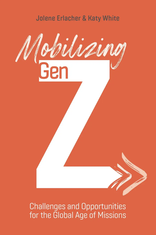|
By Sonora L Myers Malachi and I had sent mom and dad to enjoy a romantic meal for their anniversary which they had forgotten about until an hour ago. Left to buy dinner for ourselves, we decided to head back to the little döner restaurant with the scabby, stray cat that we’d eaten at the day before. We had stopped a moment outside of Starbucks when two small boys approached wanting to sell us cheap, blue, foam flower crowns. The city was so full of beggars and small children selling crafts and packets of kleenex that I had begun to grow insensitive to their presence. So when the small boys asked if we would like a flower crown, I quickly brushed the offer aside with a polite Turkish ‘tsk’ and said, “Biz iyiz” (we’re good). Surprised that we ‘foreigners’ could speak Turkish, they inquired about how two Americans knew their language. I was tired - emotionally, physically and mentally. This evening was our last day of our month-long sojourn in Europe and Turkey. After weeks of exerting my poor Turkish skills to their maximum communication and comprehension levels as we reunited with old friends, helped a church minister to many small villages in the earthquake zone and played with the kids on Gypsy Hill, I had little capacity for a chit chat with these two children. Shrinking back, I stood and zoned out as Malachi answered their probing questions. I was mindlessly waiting for them to leave us in peace so we could go and enjoy our dinner when, as I stood there, passive to anything but my own tired brain, one of the little boys broke from the conversation, approached me, and in one swift motion reached up and placed a foam flower crown on my head. His childish little face lit up in the sweetest smile as he said, “Bu senin için abla” (This is for you big sister). And just as quickly as they had appeared, they were gone, drifting around the corner and into the crowd. I stood stunned for a moment and then it was like I woke up from a long slumber to where I was - Kuşadası, Turkey, to the people rushing around us on all sides, to the beauty, to the need, to my utter desensitization to life. I stood in the insecurity I felt by my blundering attempts to communicate in a language I hadn’t spoken since I was six, in my feeling of vulnerability and fatigue and the need to remain dignified and not look foolish. I had built up walls around my heart, had taken up my home in a cold brick castle rather than humbly accepting the warm hospitality of the country and people of Turkey. I had allowed my own limitations to limit my heart. Rather than becoming personal, I withdrew and became private. I closed my eyes to my presence in a place full of people that God desperately wanted a relationship with. I didn’t put myself in the Lord’s hands, trusting that he would protect me and use my vulnerability but rather, I protected myself at the cost of losing sight of what mattered most. I choose security over generosity. I acted out of a place of scarcity rather than leaning into the rich abundance of God. I still have that flower crown. I keep it as a reminder to be generous, not just with my money but with everything; my time, my attention, my energy, myself. I keep it as a reminder to live out of humility in the security of the Lord rather than self-forged walls and a castle with closed gates. If you found this article helpful, pass it along to a friend who you think may benefit from reading it.
0 Comments
Remember Covid? Pastors and churches across the country stepped into uncharted territory those first weeks of March and April in 2020. I prayed daily for my pastor friends and can only imagine the levels of stress that piled up around them as they led their respective churches through the Coronavirus crisis. With Sunday morning services needing to be cancelled, it left many scrambling to figure out how to do church. Because so much of what we do focuses on the Sunday morning service, this posed a very real challenge for church leadership. What do we do when our weekly hour and a half long service is no longer an option? That is the question everyone was wrestling with in those early months of the Covid crisis. I sometimes wonder now however if we missed an opportunity. It seems we've jumped back into business as usual and I'm wondering if there was another path to explore. I recently read an update from a Christian working in a Muslim majority country in Central Asia. They’d been working diligently alongside a local pastor to grow a small church made up of former Muslims. The group had found favor with a local property owner and had been meeting in a storefront building on Sundays for several years. Every Sunday the church of just over fifty gathered to worship together, to listen to the preaching of their very gifted pastor and to fellowship with one another. All that changed when the building owner began to come under increasing pressure from the local Muslim community. Even though he appreciated the monthly rent, he eventually decided it just wasn’t worth it and asked them to move out. What did they do when their weekly hour and a half long service was no longer an option? They didn’t have the option of streaming the pastor’s preaching and they knew they wouldn’t be able to find another building big enough for their needs. How could they go on? The pastor and elders met and realized that they were going to have to shift away from the larger group weekly gathering. They would need to meet in many smaller groups in peoples’ homes. Rather than centralized teaching, the teaching would need to be spread out among a number of young leaders. The pastor took the time he usually invested in preparing his sermon and instead began to invest that time in preparing men. While it has been a challenging time, it has also been a time of real growth. In the smaller group settings, people have found it easier to share, to interact and to practice the "one anothers" of scripture. Young leaders, given new responsibility and a lot more time with the pastor or an elder have matured quickly. One of the most exciting aspects of this shift to smaller groups meeting in homes rather than an official church building, is that members of the church have been more active in inviting their friends and neighbors to attend and non-believers have felt more comfortable to come and visit. More Muslims are both seeing and hearing the gospel than ever before and the church is growing - both spiritually and numerically. This church still finds a place to gather everyone together once each month for a larger gathering where they worship and celebrate and yes, listen to their pastor’s preaching. They are figuring things out as they have learned in a new, personal way the truth of Paul’s words in Romans 8:28, “And we know that all things work together for good to those who love God, to those who are called according to His purpose.” I hoped and prayed that the Coronavirus crisis would end quickly back in 2020. But I also prayed that God would shake up His church, refine us and teach us to walk in new, fresh (but very old) ways. I had hoped it would be an opportunity to learn from the church in Central Asia and China and Iran -- churches that cannot have large gatherings but rather come together in homes to “dedicate themselves to the apostles teaching and to fellowship, to the breaking of bread and to prayer.” Don't get me wrong - I love my local church family and our church and I don't think the legacy church is going anywhere or needs to. I just wonder if there are other ways to do church that more reflect Jesus' focus on disciple making rather than just a holy huddle. Are there hybrid models we can discover or create? Can we reimagine a church that is less about gathering and more about going? As I wrestle with scripture I suppose I'll always wrestle with these questions and my hope is that this article will help others begin to wrestle as well. Practical Handles Here are a few resources I’ve found helpful to begin to have a handle on how to help our congregations gather in smaller groups in homes.
The Coronavirus was challenging, there can be no doubt about that. It may be a challenge unlike any we've faced in our lifetimes though I suspect there will be more to come. It may not yet be the time to consider new ways of doing church in North America, but it seems there is an opportunity to discover new rhythms, new methods, new wine skins that may lead to greater levels of fellowship, faithfulness, disciple making, evangelism and maturity. And looking at the data coming out of the Barna Group and Pew Research, we could use greater levels of all of those. If you found this article helpful, pass it along to a friend who you think may benefit from reading it. “Why, my soul, are you so dejected? Why are you in such turmoil." – Psalms 42:5 It’s been a full season of ministry, of working on good, kingdom projects and investing in people that God brings across my path. In every way, ministry has been rewarding, purposeful and mostly, a lot of fun. I really do love the work of the ministry I’m a part of. And yet. What started as a tiredness which I attributed to my week-long battle through on and off fever and a hacking cough - it’s been going around - has now settled into a low grade feeling of blah. It’s not depression. It’s not despair and I wrestle to even know how to explain it but it's there. And as I actually sit with it and think back, it's been there for a while, weeks perhaps. It is unfortunately a familiar feeling, something that visits once, sometimes twice a year and which usually, as Douglas Rumford observes, follows a season where I find myself “unable to keep all the fires that we’ve started fueled.” I took on too much. One project in particular has turned into a bit of a roller coaster of on again off again waiting with a lot riding on my shoulders. At this point it’s just a season of the blahs, of fighting to stay motivated and occasionally feeling tired throughout the day. I’m thankful that I’ve had good mentors and friends that have taught me to see the symptoms and through the years I have learned to respond proactively and early. It is easy to see however that, left untended, this sort of season could easily descend into full scale burnout. We read about it in others more than we’d like and wonder why it happens so often to pastors and leaders and regular people alike. One thing that I often find helpful is to pick up a book on the topic of soul care - that’s what it is after all - and so yesterday I began Douglas Rumford’s Soul Shaping. I’m just one chapter in but found this first chapter, “Recognizing the Symptoms of Soul Neglect” an excellent resource for anyone wondering if they are wandering into the beginnings of the blahs or the blues or the dark night of the soul. His list of ten symptoms is a useful rubric to hold yourself up to if you’re not quite sure. The list is a simple tool which will help you reflect on the state of your soul. I won’t explain each here, most are pretty easy to understand, but I’d encourage you to prioritize setting aside regular time to reflect on your life and thoughts and how your soul is doing. In our hurried, harried lives of the 21st century few prioritize anything other than keeping busy doing productive things. This of course flies in the face of John 15 and the abiding life that Jesus calls us to but it seems the siren song we cannot restrain ourselves from following. Here are Rumford’s list of ten soul symptoms:
It should be noted that everyone will find themselves in seasons like this from time to time. There are things we can do to guard against it but we do live in a broken world. We started the article with a Psalm of David, a man after God’s heart and he sounds like he’s in a pretty dark place. The Apostle Paul once wrote that he “despaired of life itself” (1 Corinthians 1:8). Charles Spugeon, in a talk to ministerial students, once said, “Fits of depression come over the most of us. Usually cheerful as we may be, we must at intervals be cast down. The strong are not always vigorous, the wise not always ready, the brave not always courageous, and the joyous not always happy.” If you reflect on the list above and find you check off more of the symptoms than you’d like to admit, it doesn’t necessarily mean that you’ve somehow been disobedient to God or failed. It does mean that you probably need to take steps to return to a place of greater soul health though. Near the end of the chapter, Rumford says, “Paying attention to our hearts is the first step to valuing ourselves – as God values us – and to setting us free to value and love others – as God through Christ values and loves them.” Set aside some time this week - a good half day or so - to sit with the Lord and reflect on the state of your soul. Other Helpful Books
If you found this article helpful, pass it along to a friend who you think may benefit from reading it. Ramadan is the ninth month of the Islamic calendar and the holy month of fasting for Muslims. It is the month that, according to Islam, the first book of the Qu'ran was revealed to Mohammed. For the month of Islam, Muslims fast from sun up to sun down, breaking the fast with the nightly iftar meal. Traditionally, the fast is broken by eating three dates following the example of Mohammed. The 27th night of Ramadan is Laylat al-Qadr or the Night of Power. This year Ramadan begins on March 10th and ends April 8th. Here are a few ways you can learn more and pray: Ramadan isn’t just for Muslims. It’s an opportunity for Christians, too- This helpful article from Crescent Project offers a host of creative ways you can love your Muslim friends and neighbors during Ramadan. 30 Days of Prayer Guide - order your free copy of the the 30 Days of Prayer for the Muslim world. This daily prayer guide has been helping Christians pray for Muslims during Ramadan since 1993. Pray 15 Minutes a Day - Pray4Movements is once again hosting a 24/7 prayer initiative throughout the month of Ramadan. Scroll down on the website to see what countries and Muslim people groups you can pray for. Crescent Project Radio - The Crescent Project radio is a great source of information and inspiration. Each episode is an interview of about 30 minutes, with authors, practitioners, former Muslims and more. On the Road to No Place Left - Season 7 of the podcast is focused on the Muslim world featuring great interviews with missionaries and former Muslims. Read a Good Book: Check out the books that have been reviewed here at the E2E blog. They'll fuel your motivation and encourage your faith. Image Credit If you found this article helpful, share it with a friend. Last month I listened to an episode of the LEAD Pods Podcast about the growing challenges of raising up young leaders for our present and future churches. Among other things brought up in this insightful conversation was the reality that our church leadership is aging while there are fewer and fewer young leaders being raised up to replace those who retire. The average age of a pastor today is 60. It was 44 in 1992. Sam Rainer wrote about this last summer saying, “A typical pastor today is approaching retirement age. Frankly, there are not enough younger pastors to replace a large group of retiring Baby Boomer pastors. The perspective of some churches with older, retiring pastors is exacerbating the problem. Once they begin to search for a pastor, they will look for an idealized version of a 30-something Baby Boomer pastor from a bygone era. Obviously, this pastor does not exist. The few candidates available will look and lead very differently. As a result, churches will struggle to fill positions as willing candidates get frustrated with search teams.” Landon Coleman, in his article “Why are Pastors So Old Today” does a good job of highlighting six reasons for the void of upcoming pastors and a few thoughts about a way forward including the admonition that churches, “should not waste time blaming the younger generation, and they should not try to pin the blame on seminaries. Instead, churches should work to train up and raise up pastors from within their own ranks. Seminaries are a helpful part of preparation for pastoral ministry. Personally, I can’t imagine doing my job without seminary. However, in the plan and the providence of God, it is the local church’s job to raise up pastors – not academic institutions.” This brought me back to thinking about Gen Z. I wrote recently about mobilizing Gen Z for missions and I often hear folks (myself included) bemoaning this young generation and the ways they live and believe and think about life and faith. I don’t always understand them, however blaming them does not solve any of the challenges facing our missionary efforts or the future of the American church. It seems that the future of the church as we know it, led by highly educated, paid professionals, may soon be a thing of the past. Our seminaries are turning out fewer and fewer pastors and most going to college today are more focused on avoiding debt than stepping into a calling to serve the local church (or any of the humanities for that matter). The church of tomorrow will be led by Gen Z whether we like it or not and so we need to think more intentionally about how to raise them up, empower them and call them into service for the Lord. Jolene Erlacher, in a recent Leading Tomorrow podcast, highlighted the predominant learning styles of Gen Z. This got me thinking about how churches and mission agencies can be working to raise up tomorrow’s leaders and the new ways we must begin to think about this task. In the interview, Erlacher describes what she calls “EPIC” learning. EPIC stands for experiential, participatory, image rich, and connected. As I listened, it occurred to me that this type of learning is in line with what the pedagogical experts have always said about the best ways to learn, ways that our churches have almost always ignored. EPIC learning looks a lot like the old learning pyramid that has been around for the last few decades. Those over forty have known little else but lecture and reading as the ways we learn. While these may have worked for us, we need to rethink how we teach and make disciples of our younger counterparts. As a member of the Gen X cohort, I still love to learn in these ways, but it’s not about me. We need to explore this new way of teaching because it is the way Gen Z learns, because it’s actually more in line with the disciple making principles of Jesus, and because, if we don’t, we’ll probably begin to lose more and more of them as they find the church and mission agency irrelevant and more interested in protecting institutional traditions than in building the kingdom. It seems in many ways like the church in North America is approaching a hinge moment in history. Changes are coming. The church as we know it may be on its last leg. It may not look the same in the future. It may lose its institutional nature. It may no longer be able to support fully paid professionals. Two things are for certain however: The Church will continue to be the means through which Christ’s kingdom expands and it will be led by Gen Z. “It breaks my heart to see friends step away from the faith, but I know that they will not be dragged back forcefully, so I just try to love them and show my faith through my action toward them.” I don’t want to pick on Gen Z here - this is a sentiment that I hear from every generation. Inevitable, Francis of Assisi will be misquoted, “Preach the gospel at all times. If necessary, use words.” It’s an interesting misattribution seeing that Francis is recorded as preaching sermons not only to people, but to the birds and animals as well. It creates a false dichotomy, pitting one aspect of the Christian work of sharing the gospel with another. It’s never words versus deeds. It is always words and deeds. It is an interesting idea to consider though - the idea that if we just love really well and serve others well, those people will want to know about our faith in Christ. But here is a question to ask yourself: Do you have friends who are not Christians? Are they Atheists, Muslims, Hindus or others? Are some of them not loving, helpful people? The type of people who would give you the shirt off their back if you needed it? I have lots of friends like that - some much more service minded than I am - and never once have I thought to myself, “Man, they are really nice. I think I want to learn more about their beliefs about God and maybe become whatever faith they are.” Why do we think our friends will respond any differently? Being nice is not the gospel, it’s part of being human. Everyone can do it and does. When we look back at Jesus and the apostles, at the early church, at Francis of Assisi, they weren’t just nice, helpful people. They were recklessly generous with their money and time and words. Jesus’ three years of ministry were filled with the disruption of broken and sinful people barging into his day with requests for healing and help. He doesn’t seem to have been good at setting healthy boundaries. The first Christians regularly sold their possessions to give to the poor, cared for the sick when others dumped them in the streets and reconciled Jew and Greek, slave and free, male and female into one body, the Body of Christ. Read any good biography of St. Francis and you’ll quickly realize that he wasn’t just nice and helpful - he was bonkers for Christ and gave everything, in word and in deed, to serve his King. Michael Frost, in his book “Surprise the World” suggests that the kind of life that actually catches people’s attention is what he calls ‘questionable lives’. These are the lives of Jesus and the apostles, the first century believers and believers, like Francis, all through history. Frost suggests that “our challenge is to find what similarly questionable lives look like in the twenty-first century.” So, as we interact with those who don’t believe, if we are going to “just try to love them and show our faith through our actions toward them” we may need to pray about what it looks like to have our love and actions become questionable in their eyes. Being a normal, good person is not enough. Yes, we should serve others through our love and actions, but Paul tells us that “faith comes from what is heard, and what is heard comes through the message about Christ” (Romans 10:17). He later shares in 1 Corinthians 3:6-7 that, “I planted, Apollos watered, but God gave the growth. So, then, neither the one who plants nor the one who waters is anything, but only God who gives the growth.” God will do the work but he uses our words as the kindling to start the fires of conversion. This is the example of the Bible. Jesus, and the disciples who followed him down through the ages, all did good deeds for others but they always spoke. They preached. They called people to repentance and to the truth that Jesus is King of Kings and Lord of Lords, the ultimate reality in the cosmos and the only true way to eternal life. If we are hesitant to share the gospel, we may want to reflect on whether that hesitancy comes from our discipleship under the word of God or if it’s more a reflection of our culture. The reality is that even talking about sharing our faith as a two part process of words and deeds would probably be a foreign concept to the disciples and early Christians and people like Francis. Jesus saved our whole life and our whole life serves him. So of course we should serve and love and help others. Because Christ lives in us we can do nothing but be the most service orientated and loving and helpful people around. And of course we should take every opportunity to share the good news of Christ - whether we know a person or not, whether we’ve loved and served them or not. Their eternal destiny depends on the seed of the gospel being planted in their heart and that won’t happen if no one shares with them. The number one complaint I hear from former Muslims who came to faith after moving to America is, “Why didn’t anyone tell me sooner?” So as you consider how to live out the fullness of a word and deed gospel message, I’ll end with this – whatever you do, in word or in deed, do everything in the name of the Lord Jesus, giving thanks to God the Father through him (Col. 3:17). If you found this article helpful, share it with others. It was several years ago that I wrote about a ministry tool called the E-Scale. Used mostly in cross-cultural contexts, “The E-Scale helps compare the cultural distances that Christians need to move in order to communicate the gospel with others. E-0 refers to evangelism of church-going Christians. E-1 extends to the very same culture through one barrier, that of “church culture.” E-2 evangelism presses into a close, but still different, culture. E-3 evangelism pushes to very different cultures.”(1) The basic idea is that the closer a person is culturally to the people they are trying to reach, the fewer the barriers there are to overcome. Sharing with an old high school friend has few barriers for communication. Moving to a Central Asian village presents a profusion of barriers to overcome; language will need to be mastered, worldview will need to be understood, customs, history, and more will need to be learned and applied to the sharing of the gospel. The relative cultural distance in this setting is immense compared to talking with an old high school buddy. On the E-scale, a high school friend is E1 where new acquaintances in Central Asia are an E-3. Missiologists and missionaries alike have discovered the importance of partnering well with national churches and near culture churches in seeing the Gospel introduced into frontier mission fields. Investing deeply in the discipleship of believers who already know the language or who grew up in a culture that was more similar to the target people group than the western missionaries then becomes an important strategic work in frontier missions by reducing barriers to communication. Some have called this “near-culture missions” which The East West Center for Missions Research and Development defines as “reaching unreached people groups through sending missionaries from geographically, culturally, and linguistically proximate people groups. This has also been referred to as proximate missions.”(2) The more we can harness the innate skills and gifts of local believers to share the gospel the more often the gospel will be shared clearly and understandably. Near-culture missions is an important strategic opportunity that the global church has been embracing. Reading a new book, Mobilizing Gen Z: Challenges and Opportunities for the Global Age of Missions by Jolene Erlacher and Katy White, I’ve begun to re-evaluate what it means to be ‘near-culture.(3)” It started with a statement from a training document for Steiger International, a ministry focused on reaching urban youth around the world.(4) The current urban generation, connected by consumerism, social media and the entertainment industry, forms the largest global culture to ever exist. It spans the globe, sharing the same values, listening to the same music, watching the same movies and sharing the same posts. This global culture is largely influenced by one predominant worldview: Secular Humanism—God is irrelevant and man is at the center. In this relativistic culture, we are god and consumerism is our religion. Many have called Gen Z digital natives. Born between 1995 and 2010, the first of Gen Z were twelve years old when the iPhone was introduced in 2007. As a generation, most did not choose to have smartphones, their parents simply bought them for them. Embracing them fully however, they have come and are coming through their teenage years with 24/7 access to the internet and social media. While the mental health results of this has been nothing short of devastating,(5) it is clear that they are more connected globally than any previous generation. It has been said that a ten year old in Omaha could very well have as much in common with a ten year old in Rome or Rio or Riyadh than with their own grandparents. And so if it is true that Gen Z is the largest global culture to ever exist, then Erlacher and White are on to something important when they say, “Given the trends in shared perspectives and values of young people across cultures, Generation Z possesses a unique opportunity. An understanding of generational views in one cultural context may equip them to engage young people more effectively in other contexts.” Could Gen Z Christians be near-culture missionaries to Gen Z Muslims, Hindus, Buddhist and atheist Chinese around the world? I’m not sure they are waiting to find out. Last year I had a zoom call with a fifteen year old in Dallas who was leading discovery Bible studies with teens from different religious backgrounds from all across the globe on Discord, a social media platform used by the online gamer community. My daughter is connected with friends in France, Turkey and the UAE. No one mobilized them to go, they were already there. For all the challenges that Gen Z faces, I am excited to see where they will lead us in the work of completing the great commission. We certainly need to continue to focus on equipping near-culture Christians living inside the 10/40 window, but might it be that Gen Z believers who are already connected with Gen Z friends inside the unreached nations of the earth will be the next powerful force in kingdom expansion. Perhaps we need to focus less on getting them to go as we went, and rather on developing disciples who love God and love others and have a heart for making disciples wherever they are . . . because for many, they are already there. 1. Missionary statesman Ralph Winter and Bruce Koch wrote “Finishing the Task: The Unreached Peoples Challenge” in which they shared the idea of the E-Scale and how to apply it to missionary strategy. This was published in an eleven page article in the Winter 2002 issue of the International Journal of Frontier Missions.
2. THE BRIDGES OF GOD: Exploring the Strategic Significance of Near-Cultural Mission. This is an extensive article written by David Bogosian filled with clear definitions and examples from both the Bible and modern day missions efforts. Accessed Nov. 22, 2023 (http://ewcenter.org/?p=8786). 3. Erlacher, Jolene; White, Katy. Mobilizing Gen Z : Challenges and Opportunities for the Global Age of Missions. William Carey Publishing. Kindle Edition. 4. Steiger International website, “Is There More?,” downloadable PDF, 9. 5. It is beyond argument that giving pre-teens and teens smart phones and social media right as they are navigating what we all know as the most difficult time of our lives - junior high - has had devastating results on the mental health and overall quality of life for Gen Z. Jonathan Haidt writes about these issues at his Substack, After Babel. See also the Varkey Foundations global study of the general health and well being of Gen Z. Through over 20,000 surveys from 20 different countries there is a wealth of information in their report which you can read HERE. Historians estimate that the population of Christians in the Roman empire was 7,500 in 100 A.D. From there, rapid growth ensued so that 150 years later the population of Christians surpassed 1 million and a hundred years beyond that, in 350 A.D. the population had exploded to 34 million so that over 50% of the population of the Roman Empire claimed Christ as Lord.1 How did such substantial and rapid growth occur in a context so opposed to the Christian message? Michael Green, in his book Evangelism in the Early Church says that “The very disciples themselves were, significantly, laymen, devoid of formal theological training. Christianity was from its inception a lay movement, and so it continued for a remarkably long time. This must often have been not formal preaching, but informal chattering to friends and chance acquaintances, in homes and wine shops, on walks, and around market stalls. They went everywhere gossiping the gospel; they did it naturally, enthusiastically, and with the conviction of those who are not paid to say that sort of thing.”2 We see the first example of this kind of lay-led expansion in Acts 8:4 where those fleeing the growing persecution in Jerusalem after Stephen’s death “were scattered everywhere, and in every place they went, they told people the Good News.” Through the work of these amateur missionaries, the church in Antioch is planted. Later in Acts we see a similar pattern. In Acts 19, Paul has come to Ephesus where, after once again being rejected in the local synagogue, he moves to the lecture hall of Tyrannus where he hosts daily discussions. Luke records that “This went on for two years, so that all the Jews and Greeks who lived in the province of Asia heard the word of the Lord (v. 10, emphasis added).” While Paul plays a crucial catalytic teaching and training role, the fact that Luke so confidently records that everyone in the province of Asia heard the word of the Lord points to what Green identifies as the “informal chattering to friends and chance acquaintances, in homes and wine shops, on walks, and around market stalls.” Regular Christians gossiped the gospel wherever they found themselves. Missiologist Doug Birdsall reminds us that, “The Great Commission is for every church in every culture in every generation. There are no exclusions. But . . . every church in every culture in every generation must determine the way in which they respond to this responsibility -- in a way that is appropriate to time and context.”3 Like the early church, in order for the great commission to be completed, the whole church - missionary and layman alike - must have vision to be involved in the work God is doing among the nations and have appropriate and accessible opportunities to do so. As a stay at home mom, Sarah is a great example of this kind of vision. Sarah is thirty eight, the mother and homeschool teacher of six rambunctious kids and busy with all that life has for her and her family. She and her husband live in a small town in Michigan about an hour and a half from Detroit. They have a good life. Sarah however has always had a heart for the nations and a desire to see Muslims have an opportunity to hear and respond to the gospel. She serves on her church’s missions committee and they support several missionaries serving inside the 10/40 window. Sarah however has had a deep longing to do more and so when she heard about Embassy, a program that helps Christians connect with Muslims online, she jumped at the opportunity to join.4 After an initial orientation and training, she quickly made her first friend, a young lady from Pakistan whom she met on a secular language exchange app. Fatima, her new friend, was looking for a native English speaker to practice English with but she was also looking for friendship. The two began messaging several times a week and talked via video chat every Tuesday morning at 8 am. Over the course of the next two years, Sarah became a sort of auntie to Fatima. Her attempts at spiritual conversations however were almost always met with cold rejection. That all changed in March of 2020. The pandemic was just beginning to shut down the world and Fatima began to descend into a spiral of despair and insomnia. On their regular Tuesday morning call as twenty one year old Fatima unloaded all her worries and fears, Sarah offered to pray. For the first time, Fatima said yes. There on the video call Sarah prayed for the despair to go away, for a good night sleep and she prayed in Jesus name. She said amen and looked back up at her screen to see Fatima with tears in her eyes. Fatima wondered at Sarah’s prayer, so personal and so unlike her Islamic prayers. She commented that Sarah prayed as if she knew God, as if she expected him to listen. Sarah of course did. The next day, Sarah received a text from Fatima. “I’m about to go to sleep. Can you pray for me again? Last night I had the best night sleep I’ve had in weeks.” God was on the move and the next week, Sarah and Fatima began to read the Gospel of Luke together. Fatima began to pray to Jesus herself and a few months later, Fatima prayed with Sarah to accept Jesus as her savior. For the past 200 years, the paradigm of western missions has been to send missionaries to the places where the gospel had not yet taken root. This was the appropriate response for that time and context. In this paradigm of missions, the missionaries went and the local church partnered with them through prayer and financial support. Missionaries did their work overseas among the nations who had yet to respond to the gospel and the local church did their work back home. There was little overlap and few opportunities for a local church in the West to do anything more than pray for and send money to the missionaries they supported. We praise the Lord today that we now live in the shadow of a tremendous legacy of those faithful missionaries who went and the churches that sent them. The testimony of the rapid expansion of the Christian church in the global south reminds us of their faithfulness. Today we in the West are learning to partner with these majority world churches to continue the ministry of the great commission. We are working to determine the new ways in which we can respond to the responsibility of the great commission, in ways that are appropriate to our time and our ever changing context. It need not be noted that globalization, which is responsible for the greatest movements of peoples around the world in history, and the rise of new technology have changed the great commission context in extraordinary ways. While we surely must continue to send missionaries - and to send more - we must also work to find creative ways to respond to the new opportunities brought about by globalization and to utilize ever expanding technological developments. Much has been written to raise awareness and equip the local church to respond to the increasing opportunities to minister to the nations through the growing diasporas in our local context. We have a unique opportunity to mobilize the lay members of our churches into the harvest among Muslims, Hindus, Buddhists and others from non-Christian backgrounds who are finding their way to the West as immigrants and refugees, university students and professionals. Diaspora ministry offers for the first time an exciting opportunity for the local church to join the missionary in the work of evangelizing the least reached of our world, an opportunity that was rare even fifty years ago for most members of a local church. This is the appropriate response to globalization and the migration trends of the nations. Globalization has been driven in many ways by the technological advances in communications and computing that have taken place in the last century. The Apostle Paul watched legions of soldiers traveling across the Roman empire on a newly built and innovative system of roads. These soldiers were on their way to subjugate nations and oppress people but as he watched those soldiers march past, Paul saw the potential for those very same roads to carry the gospel all across that same empire. The printing press, radio, television and movies were all at one time new innovations that Christians quickly began using for kingdom purposes. The Internet and smartphones are the same. Missionaries and their sending agencies have quickly begun to utilize social media and online marketing strategies to sow the gospel all across the world. These media to movement strategies place simple gospel ads on the smartphones of tens of thousands in unreached nations. Systems of response allow for instant interaction with followers of Christ who can answer questions and send gospel resources to seekers and when the time comes, to connect them with a local Christian. The ability to sow the gospel abundantly has never been more achievable. An analogy that has helped me understand the media to movement ministry strategy is the picture of a lighthouse. If we imagine the unreached people of the world as individuals sitting in row boats in great seas of their own people groups and geographical regions, with a social media outreach strategy we can shine a great light into that people group or region. Most will inevitably ignore the light. But for those who have been seeking the truth and asking questions about faith, they will see the light and begin to row toward it suspecting that the answers to their questions can be found there. This all happens of course in the privacy of their own online interactions. The story of Sarah above highlights another opportunity that has received much less attention. Most of the members of our local churches in the English speaking West do not have the technical or linguistic expertise to be a part of media to movements strategies. Like it has for Sarah however, technology has created openings for everyone in the local church who loves Jesus and has an Internet connection to travel into the digital neighborhoods where the least reached of the world are gathering and there, to build relationships, demonstrate the love of Jesus and share the good news of the Kingdom. These opportunities are simple and accessible. If we go back to our analogy, the lighthouse is a powerful tool to sow the gospel abundantly but the lighthouse requires a significant level of technological expertise. We absolutely need to raise up more with these skills and to do a better job of identifying those in our local churches who already have them and inviting them to partner with the cross cultural missionaries who are working to develop media to movement strategies. We need more lighthouses. But there is also Sarah. Sarah isn’t able to run a lighthouse. But what Sarah is able to do is to step into a small rowboat, row out into that great sea of unreached peoples and bump into a rowboat containing someone who speaks her language and who is looking for friendship. By mobilizing the lay members of our local churches into their own row boats and sending them out, more Muslims, Hindus, Buddhists and people from other religious backgrounds will for the first time be connected with a true follower of Jesus. They will for the first time be the recipients of specific prayers for them and their family. They will for the first time be able to read and interact with the living and active word of God. If those things can happen we have created a tremendous opportunity for the Holy Spirit to move. The goal of mobilizing the laity of the church into online outreach ministry is of course that more people in places where there is little or no gospel witness will hear the gospel. There are however other ways that God moves through these opportunities. As I’ve led Embassy, a ministry at Crescent Project that mobilizes people like Sarah into online outreach among Muslims over the past five years I’ve seen a number of exciting side benefits.5 Our volunteers tend to become champions for Muslim ministry in their local context. They talk with friends, small groups and Sunday school classes about what they are doing and others wonder if they too could be used by God to impact the life of a Muslim living in the Muslim majority world. Our volunteers also talk a lot about the ways they have grown in their own faith as they’ve stepped out to build relationships with Muslims who believe very differently from any of their friends. When our Muslim friend scoffs at the idea of a Triune God as utterly heretical, it forces us to dig into the word of God, to pray more and to seek wise counsel. Most would say that joining our ministry has caused them to mature in their faith. Another reality is that many of our volunteers tell of how their online outreach has acted as a sort of training for their hearts to be more bold in reaching out locally. We have also had several of our volunteers move on from online outreach to actually going as missionaries to the Muslim world. Some joined us to prepare for their upcoming move. Others began to sense a new call to missions after they began interacting with Muslims online. And finally, when the lay members of our churches begin reaching out online, it creates a greater connection to the missionaries their churches are sending. My family and I served in Central Asia for a number of years and our small rural church loved and supported us in amazing ways. But we never really sensed in our church a deep heart for the Muslim people we were living among. Imagine how that might have changed had there been five or ten members who were connecting with people from our same country, building relationships with them, praying for them and seeking opportunities to share the good news of Jesus with them. The nature of the relationship would have moved toward a fuller expression of partnership in the ministry as they asked the congregation to be praying for their Muslim friends and inevitably asked us for training. While the list of opportunities for this kind of online outreach is long and exciting, some might push back and say that it's dangerous to turn untrained people who don’t know the language or the culture loose into online relationships with people living in the 10/40 window. To this I’d first say that our ministry does give initial and ongoing training to our volunteers. It is not as in-depth as a missionary sending agency and few of them are learning the language; they are connecting with English language learners. Furthermore, this objection assumes a neutral reality but the digital world is far from neutral. I recently did a search on a common language exchange app that our volunteers use to make connections. I searched for Arabic speakers living in Algeria between the ages of eighteen and twenty two. I quickly found over 200 Algerians who had signed onto the site in just the last day looking for connections to a native English speaking friend. They will connect with someone. It may be a secular humanist or a radical atheist, a new age religionist or a jihadist but they will make connections online. Our hope is that more and more of them will connect with a follower of Jesus. Mobilizing the members of our local church is in no way going to replace the work of the professional missionary. Indeed, we need to send more missionaries. But these kinds of missional opportunities can be another spoke on the wheel of outreach among the unreached, ensuring that a few more will have an opportunity to hear and respond to the gospel. Jack is a great example of this kind of work. He is fifteen and loves video games. He also loves Jesus and as he was interacting on Discord, the instant messaging app favored by gamers, he began to realize that he was interacting with people from all over the world, many of them from the Muslim, Hindu and Buddhist worlds. He soon began to share about his faith and invite people into discovery Bible studies. Rita is seventy two, retired and joined our online ministry because she was convicted by the question, “Am I going to crochet my way to heaven?” She volunteered with us and on our orientation call, I was able to open up Facebook, search for “crochet Pakistan '' and we discovered four private groups of women who love to share their pictures of the handiwork they have created and to interact online. Rita asked to join one of the groups and was quickly welcomed by these Pakistani Muslim women, most of whom spoke some English. She was the first follower of Christ any of them had ever met. The opportunities for online outreach are nearly unlimited and they are available to the members of our local churches. Because of this, we in the mission community have a unique chance to invite our local churches into the harvest among the unreached in ways that have never before existed. In doing this, we can help ordinary followers of Christ find their way into the extraordinary work of God among the unreached. Endnotes 1. Stark, Rodney. The Rise of Christianity. HarperSanFrancisco; unknown edition, 1997. 1. Green, Michael. Evangelism in the Early Church. W.B. Eerdmans Pub., 2004. 3. Borthwick, Paul. Western Christians in Global Mission: What's the Role of the North American Church? IVP Books, 2012. 4. Embassy is a ministry of Crescent Project and mobilizes followers of Christ into the harvest among Muslims online. Learn more at: https://www.crescentproject.org/embassy 5. Crescent Project’s mission is to give every Muslim the opportunity to respond to the gospel and be connected with a follower of Christ. Embassy is just one of many of the ways they are working to complete this mission. Learn more at: https://www.crescentproject.org/ If you found this article helpful, please take a moment to share it with a few friends. Thanks so much! If you walk long enough in the various neighborhoods of the Christian faith, you will inevitably begin to notice the cul de sacs where groups gather around all sorts of factors: ethnic identity, doctrinal beliefs, native languages, experiential aspirations, worship style preferences - even favorite translations of the Bible. Finding our way into groups who are like us and with whom we feel we can walk out our understanding of Christian belief comfortably and faithfully is of course natural. In as much as we have all grown up being shaped by family and church life experiences, books we read and sermons we listen to it is a wonder we don’t have more groups dotting the landscape of Christianity. Like a cityscape filled with the architectural styles developed by generations of creative genius, the world of Christianity is a vivid expression of the beauty of the image bearing nature of human personality and perspective and cultural creativity. We are of course the body of Christ, individually and corporately. For just as we have many members in one body and all the members do not have the same function, so we, who are many, are one body in Christ, and individually members one of another (Romans 12:4-5). When lived in balance and with a proper perspective built on love and humility toward one another, Christianity is an amazing expression to a lost and broken world of the goodness, truth and beauty of God. Our witness is bold and our fellowship is a reflection of the love of 1 Corinthians 13. We are patient and kind and we don’t envy or boast. We aren’t proud. We don’t dishonor others and are not self-seeking or easily angered. We keep short accounts - no records of wrong. We never delight in evil and together rejoice in the truth. We always protect - even those we disagree with over doctrine or politics. We trust and hope and persevere, and we do all of this because love never fails. When we live Spirit filled and activated lives in the shadow of the 1 Corinthians 13 rubric of life, we become together what Corrie Ten Book called, “tramps for the Lord” who have left our hiding places to roam the Gap with the Savior. We are heaven’s expatriates, camping where the kingdom is best served. We are earth’s dispossessed, who’ve journeyed forth to give a dying world not only the Gospel but our own souls as well. We are members of God’s global dispersion down through history and out through the nations, reaching the unreached and blessing the families of earth.* Our differences then become the seasoning of our witness rather than the warts about which the world sees us fighting and arguing. We will still have robust discussions - arguments even - over points of interpretation, ideas about how to engage the world, what worship should look like and everything in between, but these discussions will be covered in love and cloaked in humility knowing that in this life, we see through a glass darkly. We will strive to walk in the paradox of grace and truth, knowing that grace without truth is not grace and truth without grace is not truth. And because we will fail often, we’ll be quick to ask forgiveness of our brother or sister. While all of this seems a tall order, it is the way forward for the North American church. We’ve been duped into kingless kingdoms of social justice, culture warring kingdoms of god and country or the bland sort of cultural Christianity which is little more than a safe civil religion. None of these hits the mark. Let us therefore work together in love to pursue our Lord into the harvest, shining our light in the darkness, being salt and yeast in a broken and distorted world, edifying and encouraging one another, dedicating our lives to studying the word of God, to prayer, to fellowship, to bold witness and above all, to love. A new commandment I give you: Love one another. As I have loved you, so you also must love one another. By this everyone will know that you are my disciples, if you love one another. Photo Credit * David Bryant defines world Christians with this description in his fantastic book, In The Gap: What it means to be a world Christian. Ramadan is an important month in the Islamic lunar calendar because it is the month in which - according to Islamic theology - the first revelation of the Koran was revealed to the Prophet Mohammed. During Ramadan all Muslims across the globe are required to abstain from all earthly pleasures - food, water, cigarettes, sexual relations - from sun up to sun down. Fasting like this during Ramadan is one of the five pillars of Islam and it is one of the most important religious and cultural holidays for Muslims. This year Ramadan runs from March 22nd through April 21st. Ramadan is a unique opportunity to pray for our Muslim friends and the Muslim world. There are a host of great resources to help Christians and their churches dedicate time to prayer for the Islamic world during this month. 30 Days of Prayer Since 1993, the 30 Days of Prayer for the Muslim world has been a helpful resource to guide prayers throughout the month of Ramadan. Available in booklet form or as a PDF, you can order your prayer guides at: 30daysprayer.com/booklets/ Pray4Movements The Pray4Movements team have partnered with churches and missionaries to create 24/7 prayer for individual countries and regions during the month of Ramadan. This is a great opportunity to partner with the global body of Christ to see non-stop prayer for Muslims during the month of Ramadan. We've partnered to form the Pray4Turkey initiative through the month of Ramadan and would love to invite you to sign up for one fifteen minute slot of prayer or a daily fifteen minute slot. You can sign up at: pray4turkey.pray4movement.org You can find the complete list of pages here: pray4movement.org/ramadan-2023 Prayercast Prayercast creates powerful videos that will help you and your church pray for the Muslims world. They have videos for nearly every country on earth as well as a whole section of videos focused on raising up prayer for the Muslim world. You can watch the Ramadan prayer video below but here is the link to all the prayercast videos focused on the Muslim world: prayercast.com/love-muslims-home.html When God is about to do a powerful thing, he always sets his people praying. -Johnathan Edwards Prayer is an important work in seeing the great commission fulfilled. These are just three ways you can be involved. Sign up for one today and share this post with a friend. We need the whole body of Christ to join in this important time of prayer. Did you find this post helpful? Share it with a friend! |
The E2E Community
Categories
All
Good Books
Archives
April 2024
|
Proudly powered by Weebly

















